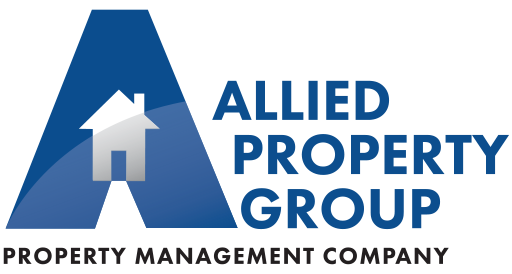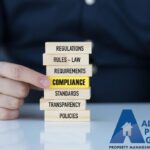Vlog Video:
Podcast Only
On March 30th, the Miami-Dade Mayor Carlos Gimenez announced that communal areas, like gyms and pools, in condominiums and apartment buildings would be closed. On April 1st, Florida Governor Ron DeSantis announced that social distancing measures and the limiting of non-essential businesses would continue throughout the month. As a result, we sat down with Attorney David Iglesias to help answer your questions about how this will impact your community.
Within Your Community
The Emergency Powers granted to the Board of Directors are related to Hurricanes, our most prevalent local issue. Those Emergency Powers can be adapted to deal with the current pandemic, as this is an emergency situation and those extra powers are applicable. While it can be painful to see the common areas of your community closed, it is highly recommended. Having common areas open, not only creates avenues for your residents to get infected, it could possibly open your association up to liability if someone does get sick and they trace it back to the common area.
You cannot limit any ‘essential’ personnel and deciding who is and isn’t essential can be a challenge. If you have a guard gate, provide your guards with guidelines and when possible, provide an authority where they can direct questions. You cannot limit a guest visiting to care for an elderly parent or one who is fixing an appliance, but how about a contractor who has yet to begin a project? These questions should be fielded to the Association’s attorney. In a high-rise situation, you can limit delivery personnel walking the halls by setting up an area for them to drop off packages or meet owners to deliver meals.
With Homeowners
What do you do when you have an owner that catches the virus? You must be mindful of HIPPA’s right to privacy. If they do not want it to be known, you cannot release their name. You can inform the rest of the community that there is an instance of the virus within the community. This would be a good time to remind them of any extra cleaning services you’ve employed. It’s also good to remind them about the things they can be doing themselves to limit their contact with the virus.
If you find a homeowner that is refusing to self-quarantine, whether they have the virus or have just traveled from a ‘hot zone’ you cannot, the Association cannot do anything about it. Nowhere in any contract does it state that you can confine people to their homes. You can do what any rightful citizen can do and report them to the authorities. If you find someone spreading the virus maliciously, intentionally touching and coughing on items, you should contact the authorities immediately.
Fees
With the difficult economic times that have followed this pandemic, it can be hard to collect your association fees. While Allied Property Group is fully functional remotely and can accept any fees submitted, you know that when given the choice between feeding their family and paying their association fees, the former will always come first. If there are things in your budget that can wait, say replacing a playground, doing an update to the common area, or perhaps a fresh coat of paint, it may be a good idea to delay these.
Be proactive. Communicate with your homeowners, that their association fees go to paying essential services, like maintaining green spaces, guards and protection, possibly water, waste removal, electricity for the common areas, insurance, and repair work. Encourage your homeowners to reach out to you if they are unable to pay their fees. Provide those who do communicate with options like waiving late fees, reducing rates (if possible), or payment plan flexibility. Always consider your budget and what your association can afford to miss.
Employee Safety and the Rules
Many of the rules of an association are included in the agreement for a reason. A recent issue, with owners leaving their shoes in the hallway is a great example. While a homeowner may not want to bring their shoes inside the home, as they feel they may be inviting the virus inside, they cannot put their fellow homeowners at risk because of it. Trip hazards in hallways are not permitted under any circumstances. Provide your owners with other options. Perhaps encourage them to set up a mat where shoes will reside, just inside the house. There is a reason for the rule, but there is also an understanding of the situation. Communication is key right now.
Keeping personnel safe is just as important as protecting your homeowners. Security guards, cleaning staff, and maintenance specialists and are essential jobs, meaning they will continue to be in your community and continue to be paid. Whatever you can do to protect them, without jeopardizing the safety of the community, should be done. If your guard has to collect driver’s licenses to run, you should provide them with gloves. If your rules require a sign on the dash of someone’s car, but every vehicle is logged upon entry, perhaps it’s time to forgo that rule, to limit contact between your guard and visitors. Be creative in your thinking and do whatever you can to protect those who work for your association.
Meetings
Yes, annual meetings can be rescheduled. If you have a small enough community, you can even set up a teleconference, as long as each attendee has the ability to speak. If it is a larger community and there is a meeting scheduled, evaluate the contents of the meeting and see if they can wait. Can you get the basics of the meeting done in a simple planning meeting with the board and save the member questions for next month? If you cannot, it’s a good time to reach out to us and see if we can provide a solution.
Allied Property Group
We are here to help. At Allied, we’re fully functional in a remote capacity. We are still collecting maintenance fee payments, and accepting applications. We are still processing and answering the phones for our clients. If you’re interested in learning more about what Allied can do for your community, find out more about us. For more answers to your questions, listen to our Podcast.
A special Thank You to David Iglesias of DI Legal Group for joining us today. You can contact him at 954.362.5222.




